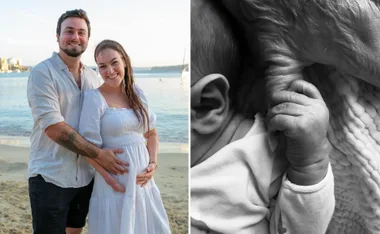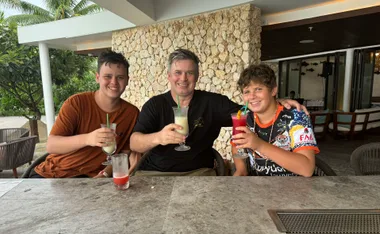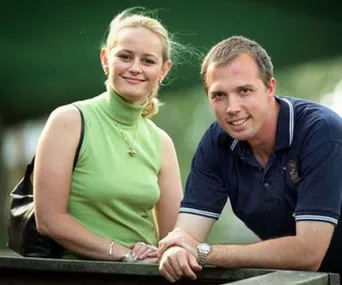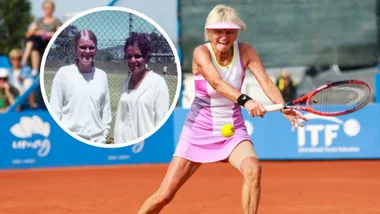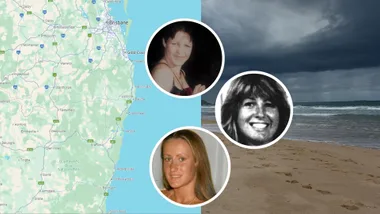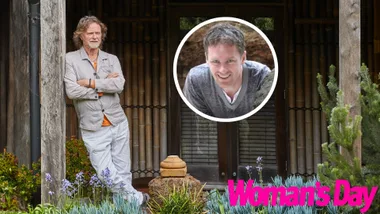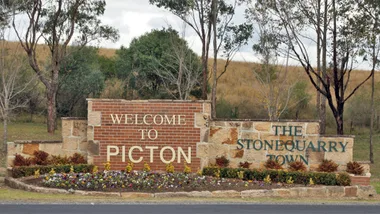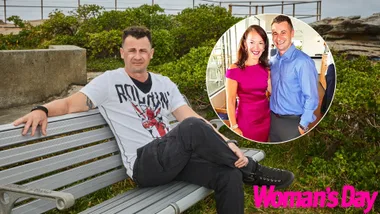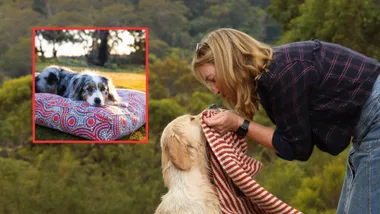When Kath King stepped off the boat onto the soil of Egypt, preparing to serve her country as a nurse in one of the biggest battles in Australia’s history, she never expected to fall in love. But Herbert Gordon Carter had something to say about that.
As Kath adjusted to her new surroundings, little did she know that she was just days away from meeting the man she would spend the rest of her life with – but not before they played their parts in the horror that was Gallipoli.
Transcribed to Peter Fitzsimons, who wrote the best-seller Gallipoli, Gordon and Kath’s granddaughter blew the dust off a love story that has lasted a lifetime.
Michael Sheather reached into the history books and re-told this story of love, loyalty and the war between.
Kath King didn’t know whether to laugh or call for help. The outlandishly dressed Egyptian fortune teller sitting across the table form her bedecked in strange jewellery and a red felt fez, seemed preposterous to this decidedly practical 27-year-old army nurse from Orange in country NSW.
She’d just stepped ashore at Port Said in Egypt on January 13, 1915 after weeks at sea aboard an army transport ship and seeing this fortune teller seemed like an exotic treat on her first day in a foreign country.
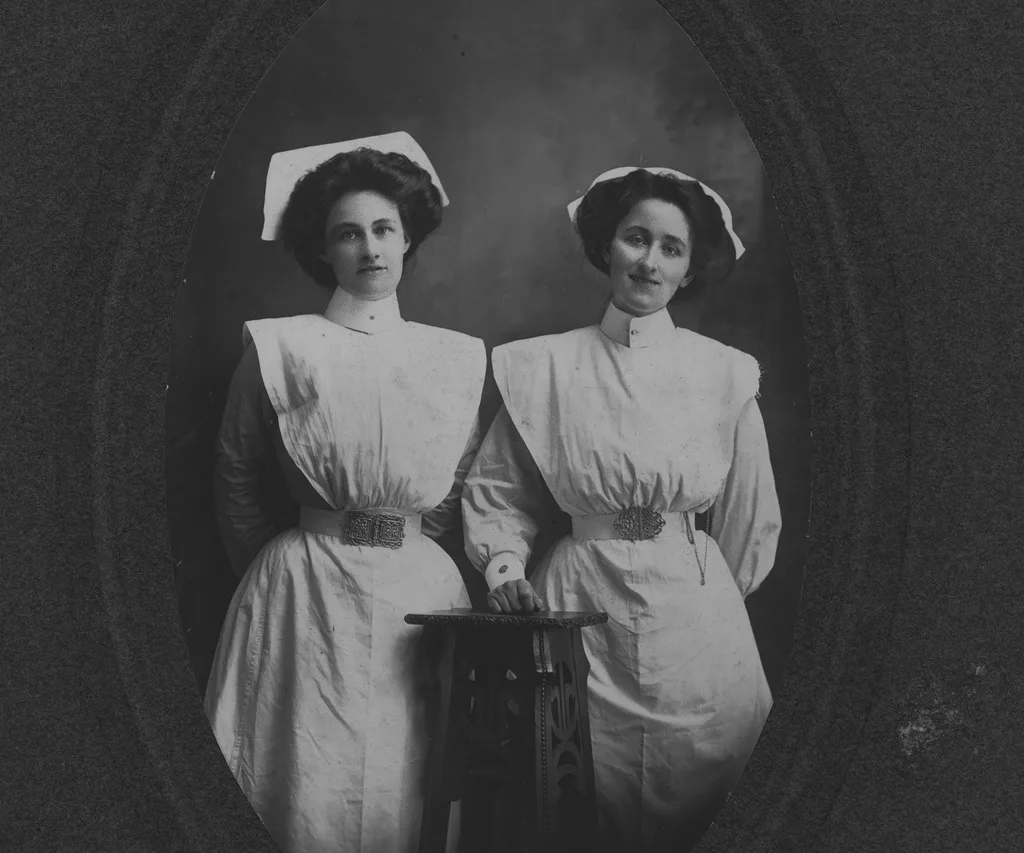
Kath and her sister, Wynne.
However, the fortune teller, strangely dressed or not, took his job seriously enough. “You will live to be a bent old woman walking with a stick,” he told Kath, flicking over the cards like croupier. “You will be rather deaf but have very good eyesight. Next year you will marry a very nice good man, and have two children.”
What a carry-on, she thought. Here she was, at the start of a war. She didn’t know anyone well enough to consider marrying them. The fellow was obviously a sideshow charlatan. “All this I reckon, bunkum,” she wrote in her diary that evening before setting off for Cairo and the main Australian camp at Mena, just outside the ancient city.
But, as it turned out, the fortune teller wasn’t far off the mark. Kath King was just days from meeting the man she would ultimately marry and with whom she would spend the rest of life.
“Nurse Kath King would meet this man, bear his children and grow old with him but not before they played their parts at Gallipoli in a war that claimed the lives of millions,” says best-selling author Peter Fitzsimons, who recounts the story in his latest book, Gallipoli.
“Theirs is a love story that succeeds despite the odds. As soon as I read the diaries, I knew this was a story I had to tell.”
A story, as it happens, that was also very close to home. Peter discovered the love story of Kath and Gordon Carter in the pages of diaries sent to him by his cousin
Alison Flanagan. Alison is Kath and Gordon’s granddaughter who only discovered the tale of her grandparents’ wartime romance in recent years.
“My grandfather Gordon, who I knew as gaffer, died when I was a little girl though Granny survived him for more than a decade,” says Alison. “To us, they were just our grandparents. They never talked about the war or how they got together.”
Lydia Kathleen King, or Kath as she preferred, was born in Orange and did her nurses training at Royal Prince Alfred Hospital before volunteering as an army nurse at the outbreak of war in late 1914.
Herbert Gordon Carter was the second son of a man who was the first principal at the exclusive girls’ school Ascham. Schooled at Sydney Grammar, Gordon trained as an engineer and joined the army to become a tall, handsome lieutenant in the 1st battalion AIF patriotically setting sail with thousands of other young men for the Middle East and the attack on the Dardanelles.
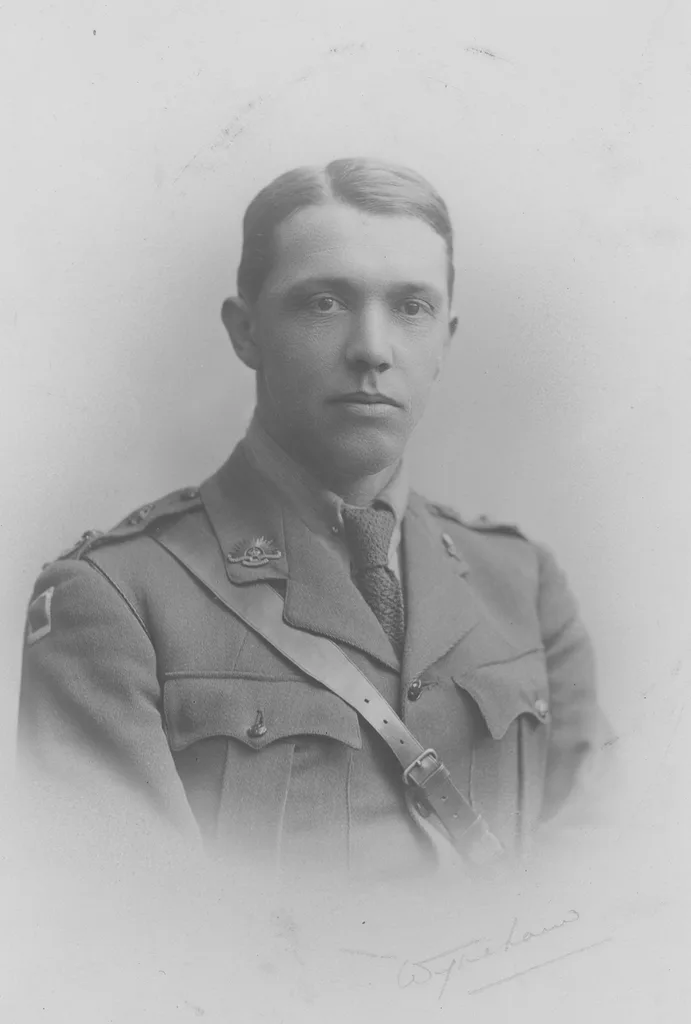
Herbert “Gordon” Carter
Gordon’s sister Ursula, called ‘Fuff’ by her older brother, was also a nurse and, as it happened, a friend of Kath King. When Gordon called on his sister at the nurses’ billet at Mena Camp in 1915, he met the charismatic Miss King.
“Noticed a commotion around the doctors’ tent at noon…to my astonishment Fuff had arrived accompanied by three other nurses. So we had lunch after which, Fuff, Nurse King and I went over to Mena and hired donkeys. Visited the Sphinx and rode around the Pyramids.”
Gordon was taken with Nurse King’s strength of character and the fact that she preferred a man’s saddle, riding astride the donkeys, not sidesaddle like the other nurses, even though she fell off.
That evening they dined at Shepheard’s Hotel, Cairo’s most famous meeting spot for officers and nurses in two world wars. “Mrs Dobbin joined us and lent all the girls evening dresses. We dined at the table next to General Birdwood (the Australian commander).”
As befits the times, the language Gordon and Kath use to describe their courtship is both formal and quaint. In his diary entries, he calls her Miss King up until the day he proposes.
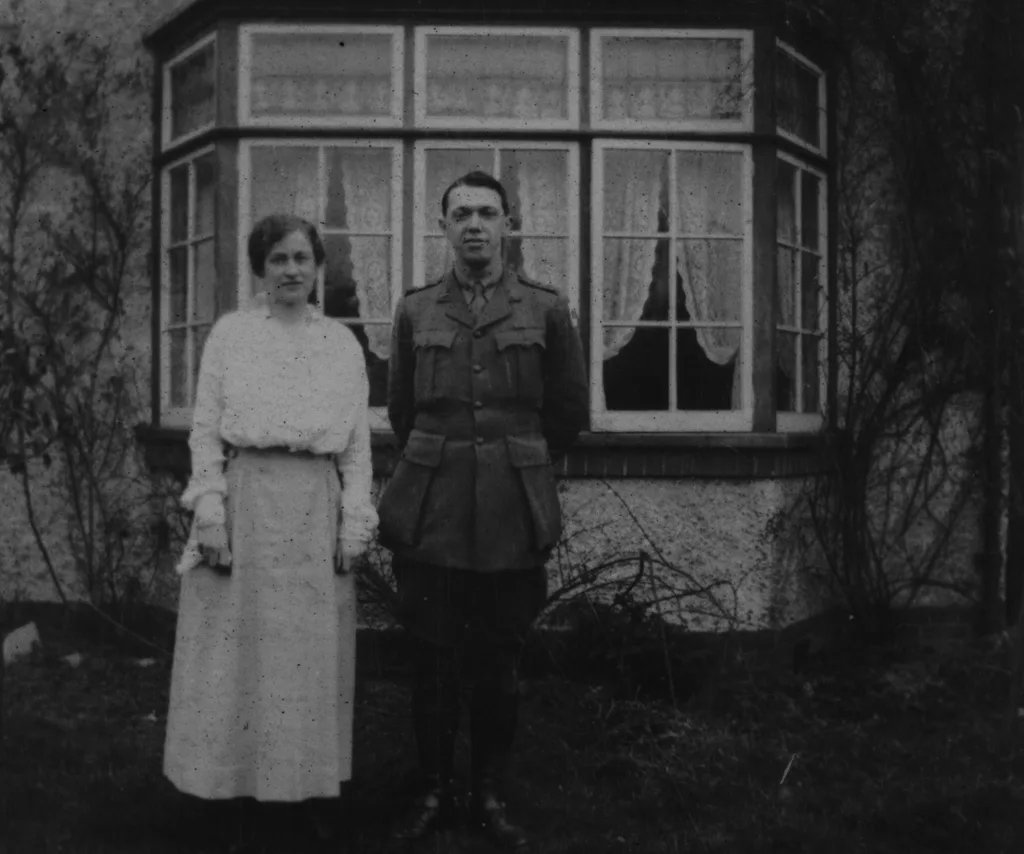
Kath and Gordon before their wedding.
“Gordon was in a very confidential mood,” wrote Kath after another dinner at Shepheard’s. “He is just a nice brother. I like him immensely. We spent two hours at dinner and went out in the garden for a while and watched the dancing…”
During the next few months, as the Australian soldiers trained, marched and practised their attacking manoeuvres, Gordon and Kath grew ever closer. But eventually, the war intervened.
Gordon landed on the beach at Gallipoli in the second wave of Australian troops. Kath was aboard a hospital ship tending to the wounded brought from the peninsula by boat. In her diaries she describes the awful shelling that she can see on shore and wonders if Gordon is under it.
“As she looks about her at the hundreds of wounded soldiers in her care, she is more than aware that Gordon might be among them without her knowledge because some of them are so badly maimed that they are unrecognisable,” says Peter.
They didn’t meet again until several months later in Cairo, after Gordon had been withdrawn from Gallipoli. “I was very glad to see her,” Gordon wrote.
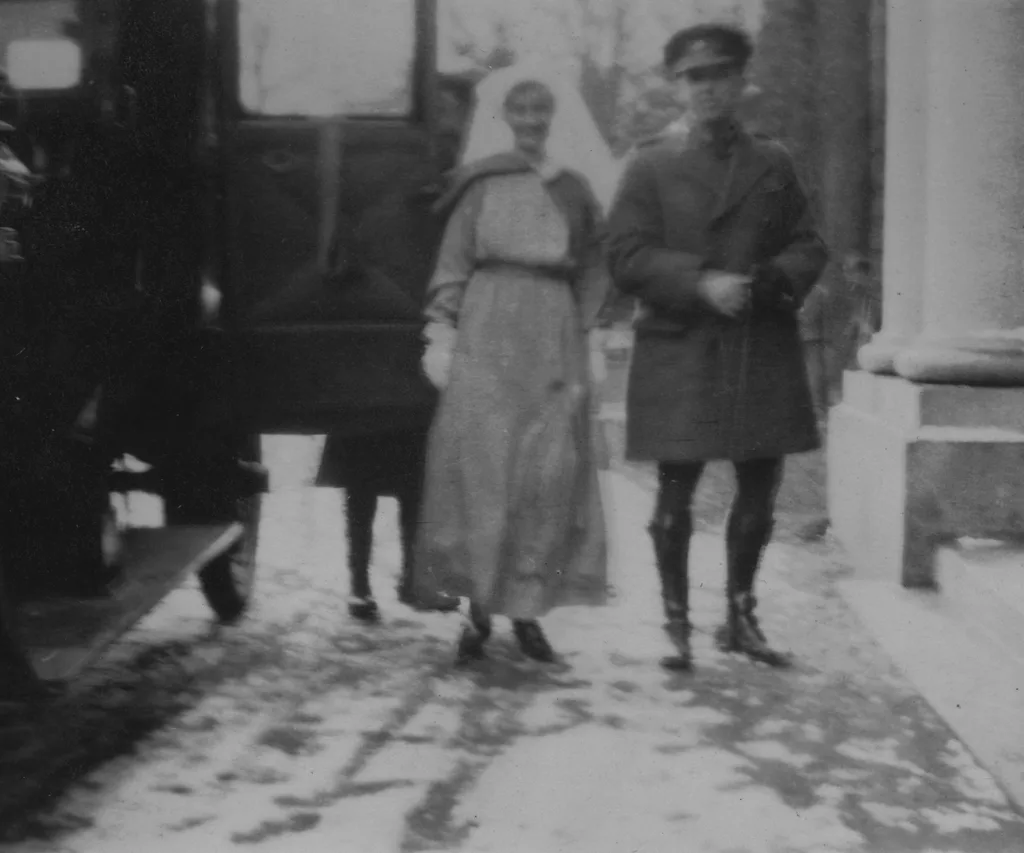
Kath and Gordon on their wedding day. Kath was wearing her nurses uniform and a veil.
Their relationship took up where they had left off. But the truth was that their experiences had changed them. For Gordon, his time in the trenches with men dying all around him, had drained him of all emotion, something he was to suffer from for the rest of his life.
Kath, too, had seen too much of the true horror of war. “I shall never speak of the horrors that war brings and the ghastly wounds men suffer,” she wrote. “It is too much for someone who was not there to understand.”
Gordon asked Kath to marry him in Cairo on June 11, 1916, a little more than a year after they first met. “Gordon bought me a bonser (sic) engagement ring, quite the best I have ever seen,” Kath wrote.
Gordon’s diary entry is surprisingly unemotional – laced instead with the practicality and stoicism of the times. “Became engaged to Sister King but can’t say that I felt myself any violently different person as a result (as you might expect)…I don’t think Kathleen or myself quite realise what we are in for but we decided to leave things in abeyance till European affairs get more settled. Then we would think of ours.”
They didn’t get to think about themselves properly until January, 1917, when they married in London. By then Gordon was a major and committed to the savage battles on the Western Front.
“They weren’t sure if they would survive, no one was at that time,” says Alison. “They knew that the chances were that Gordon would be killed but they married anyway in what I see as an act of defiance and determination in the face of an unending horror.”
Gordon did survive the war. They returned home in 1919 and started their family, rarely leaving each other’s side. They lived in Turramurra on Sydney’s north shore and raised three children. John, their eldest died over the English Channel whilst fighting in World War Two. Ted, their second boy and Alison’s father, was a Rat of Tobruk who also fought at El Alamein.
“They were good people and they lived good lives,” says Alison. “They were devoted to each other but it was a private love not something they showed to other people. I think that was probably because of the war. They understood each other and relied on each other, too. I think their relationships shows that love really can triumph over just about anything.”

